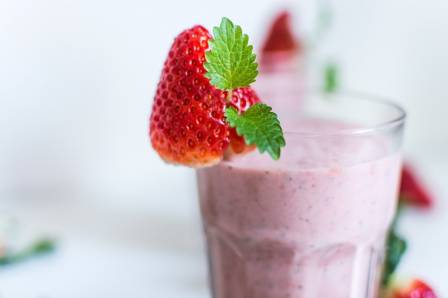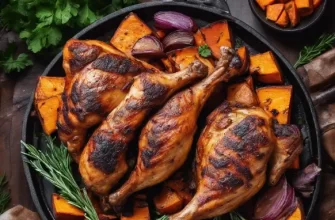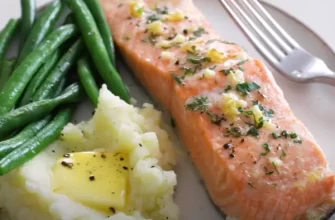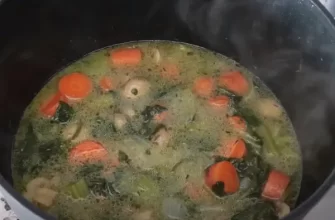During a menstrual cycle, a woman’s body goes through various hormonal changes that can lead to physical and emotional discomfort. While there is no one-size-fits-all approach to managing these symptoms, being mindful of your diet can make a difference.
Certain foods have the potential to worsen PMS symptoms, increase inflammation, or affect hormone levels. By avoiding these foods, women can potentially alleviate some of the discomfort associated with their period.
Why certain foods can have an impact on your period
Hormonal Balance: Some foods, such as those high in sugar and processed carbohydrates, can cause spikes in blood sugar levels. These fluctuations can disrupt hormonal balance and exacerbate PMS symptoms.
Inflammation: Certain foods, like processed meats and refined grains, can promote inflammation in the body. Inflammation can worsen menstrual cramps and make them more painful.
Estrogen Levels: Foods containing phytoestrogens, such as soy products, may impact estrogen levels in the body. This can lead to hormonal imbalances and contribute to PMS symptoms.
Caffeine: Both caffeine can disrupt hormone levels and exacerbate symptoms like breast tenderness and mood swings.
By avoiding or reducing consumption of these foods during your period, you may experience some relief from symptoms. Remember, it’s important to listen to your body and make adjustments based on your individual needs.
Foods to avoid during your period
Salt
During menstruation, the body tends to retain more water, leading to bloating and discomfort. Consuming foods that are high in sodium, such as salty snacks, fast food, and processed meals, can worsen these symptoms. Salt can cause the body to retain even more water, making bloating more pronounced. It’s best to limit your intake of these foods and opt for healthier, low-sodium alternatives, such as fresh fruits and vegetables.
Processed foods
Processed foods are often high in sugar, unhealthy fats, and preservatives, which can exacerbate menstrual symptoms. These foods can disrupt hormonal balance, increase inflammation, and intensify mood swings and cramps. Furthermore, they offer very little nutritional value, leaving your body deprived of essential nutrients. Instead, focus on consuming whole foods, such as lean proteins, whole grains, and leafy greens, which can support hormonal balance and provide essential nutrients to alleviate menstrual discomfort.
Caffeine-rich foods and drinks
During your period, it’s important to be mindful of your dietary choices to alleviate uncomfortable symptoms. One particular group of foods and drinks to avoid are those that are high in caffeine. Caffeine can exacerbate menstrual cramps and contribute to mood swings.
Caffeine is known to constrict blood vessels and increase muscle tension, which can worsen menstrual cramps. Additionally, it can disrupt sleep patterns and increase anxiety, leading to mood swings and irritability.
To alleviate period-related discomfort, consider replacing caffeine-rich foods and drinks with healthier alternatives. Opt for herbal teas such as chamomile or peppermint, which can help relax muscles and reduce cramps. Additionally, choose decaffeinated versions of your favorite beverages or switch to caffeine-free options altogether.
By being mindful of your caffeine intake during your period, you can potentially reduce the severity of cramps and mood swings, allowing for a more comfortable and balanced experience.
Sugar and sugary treats
During your period, it’s important to be mindful of the foods you consume, as certain choices can either alleviate or worsen your symptoms. One common culprit to avoid is sugar, especially sugary treats.
Consuming sugary foods can lead to blood sugar spikes and crashes, which can intensify mood swings, fatigue, and irritability commonly associated with premenstrual syndrome (PMS). Additionally, sugar can also cause bloating and inflammation, making those uncomfortable symptoms even worse.
While it’s natural to crave something sweet during your period, there are healthier alternatives to satiate your cravings. Opt for natural sweeteners like honey, maple syrup, or stevia instead of refined sugar. Incorporate fruits, such as berries or bananas, into your diet to get a sweet fix while also benefiting from essential vitamins and fiber.
Additionally, dark chocolate with a high percentage of cocoa can be a good option, as it contains less sugar and may offer mood-boosting benefits. Remember to always listen to your body and choose moderation when indulging in any treats.
Dairy products
When it comes to managing your period, certain foods can help alleviate symptoms, while others can exacerbate them. Dairy products fall into the latter category.
Dairy contains high levels of naturally occurring hormones, such as estrogen and progesterone, which can disrupt the delicate hormonal balance in your body. This disruption can lead to increased levels of estrogen, leading to heavier and more painful periods.
Fortunately, there are plenty of non-dairy alternatives that can provide the same nutritional benefits without the hormonal side effects. Options like almond milk, coconut milk, and soy milk are readily available and can be easily incorporated into your diet.
These alternatives not only offer relief from hormonal imbalances but also provide essential nutrients like calcium and vitamin D to support overall menstrual health.
By opting for non-dairy alternatives, you can create a happier and more comfortable period experience while still maintaining a balanced and nutritious diet.
Fatty and fried foods
During that time of the month, it’s important to pay attention to your diet and make choices that can help alleviate period symptoms. One type of food to avoid is fatty and fried foods.
When you consume fatty foods, especially those high in unhealthy fats like trans fats, it can lead to inflammation in your body. This inflammation can worsen symptoms such as bloating, cramps, and mood swings during your period.
It’s best to opt for healthier alternatives when it comes to fats, such as avocados, olive oil, and nuts. These contain healthier fats that can actually help reduce inflammation in the body.
Tips for managing menstrual symptoms through nutrition
It is crucial to pay attention to the foods you eat while on your period to effectively control your symptoms. It is generally recommended to stay away from certain foods that can worsen cramps, bloating, and mood swings. These include foods high in sodium, processed snacks, sugary treats, and caffeine. Instead, choosing a well-balanced diet that includes plenty of fruits, vegetables, whole grains, lean proteins, and drinking enough water can help relieve menstrual discomfort and supply necessary nutrients.
- Decrease the amount of salt you consume: Excessive sodium levels can cause fluid retention and swelling, therefore it is advised to limit your intake of salty food.
- Avoiding processed foods can be beneficial for managing menstrual symptoms since snacks and meals that are processed tend to have excessive amounts of salt, sugar, and unhealthy fats.
- Reduce your consumption of caffeine as it can heighten anxiety, disturb your sleep, and worsen breast tenderness. It is recommended to decrease the amount of caffeine you consume while you are on your period.
You can take control of your menstrual symptoms and improve your overall health by carefully selecting what you eat and focusing on foods that are rich in nutrients.









